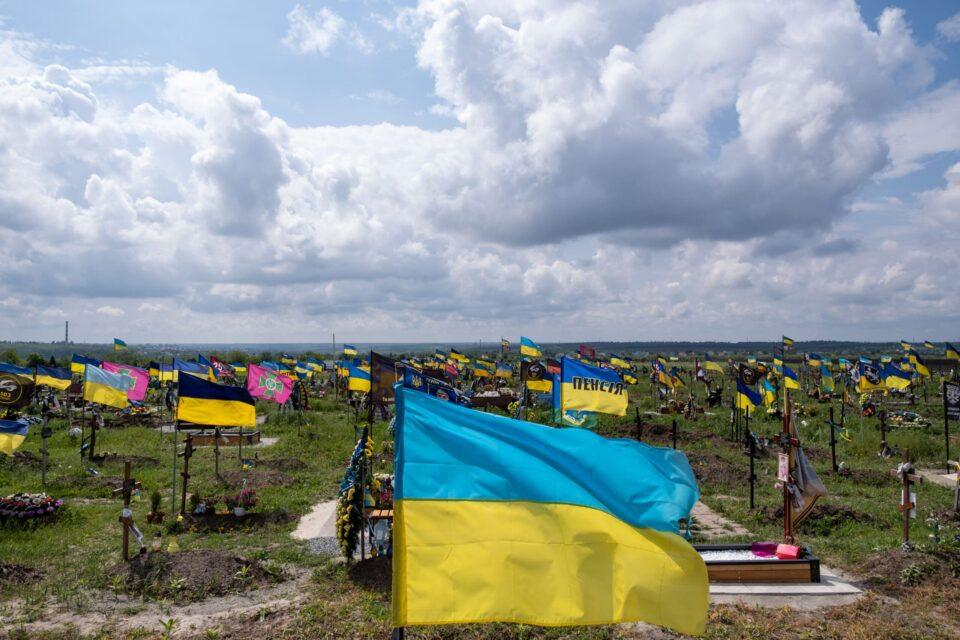The heavy toll of the Ukraine invasion

The Wagner Group’s weekend mutiny highlighted the heavy cost of the Ukraine occupation for Russia and the worsening state of the war. The group’s leader, Prigozhin, had previously shared videos revealing significant losses and insufficient support on the front lines. Prigozhin’s attempts to communicate through social media indicated his inability to reach Putin and express his concerns. Facing heavy casualties due to a lack of necessary support, Prigozhin openly challenged the Defense Minister, jeopardizing Wagner’s control.
The Russian Defense Ministry’s announcement that groups like Wagner would need to sign direct contracts with the military starting July 1st signaled Putin’s decision to support the army and bypass Prigozhin. Prigozhin had to choose between accepting integration into the Russian military, effectively losing control of Wagner, or attempting to preserve its autonomy through an uprising, as seen over the weekend. Opting for the latter, Prigozhin dealt a severe blow to Putin’s administration, but the outcome remains uncertain. The desired resignations of the Defense Minister and Chief of the General Staff did not materialize, leaving the control of Wagner in question.
Additionally, Wagner’s rapid approach towards Moscow revealed the country’s significant security vulnerabilities. The mutiny, appearing to evolve into a coup, raised the strong possibility of escalating into an internal conflict. The nation’s weakened internal security apparatus cast a shadow over Putin’s power. The Ukrainian conflict and the involvement of the Russian military-backed paramilitary group, Wagner, in combat represent a significant failure of governance from multiple perspectives. The attempted invasion of Ukraine quickly dragged Russia into an indirect conflict with NATO, revealing the inability of the Russian government to unite its military and paramilitary forces under a common strategy.
Putin’s promises to punish the traitors involved in the uprising, along with his references to the events of 1917 and warnings of a civil war, revealed his lack of control over the situation as he sought to negotiate with Prigozhin. The absence of significant resistance as Wagner approached Moscow also raised doubts about Putin’s full confidence in the army. Throughout the occupation, strategic mistakes, logistical problems, personnel shortages, changes in leadership, and the reliance on paramilitary forces like Wagner and Kadyrov demonstrated attempts to patch up the situation on the go. Prigozhin’s march towards Moscow exposed the fact that these issues would not remain confined to the battlefield but could directly threaten the regime itself.
The Russian army’s ability to present an image of unity and coherence internally has now become even more impossible. Even if an agreement is reached for integration with Wagner, deep mistrust will persist, especially as long as Prigozhin is in the picture. The temporary absence of Wagner forces’ effectiveness will be a significant loss for the Russian army in the short term. Reports of Ukraine making progress in the Russian-occupied Bahmut indicate a strengthening morale advantage for Ukraine. The Ukrainian army, preparing for a large-scale counterattack in the coming summer and autumn, will take advantage of the internal turmoil on the Russian side. Efforts to reclaim all Ukrainian territories, including the seemingly difficult task of Crimea, will gain momentum.
The evident vulnerability of the Russian government both on the front lines and in Moscow provides an advantage for Ukraine in the short and medium term, while also serving as a motivation for NATO countries to continue their support. I previously mentioned that the continuation of Western support would depend on Ukraine achieving clear results by the end of this year, or else there could be increased pressure for peace negotiations. The developments over the weekend indicate a relief of such pressure on Ukraine. However, it is important to note that the West does not desire complete chaos in Russia or the endangerment of nuclear weapon control. Therefore, while continuing support for Ukraine, the West is likely to explore options for an “exit” for Russia through initiatives like the “Peace Summit” convened in Copenhagen.




















